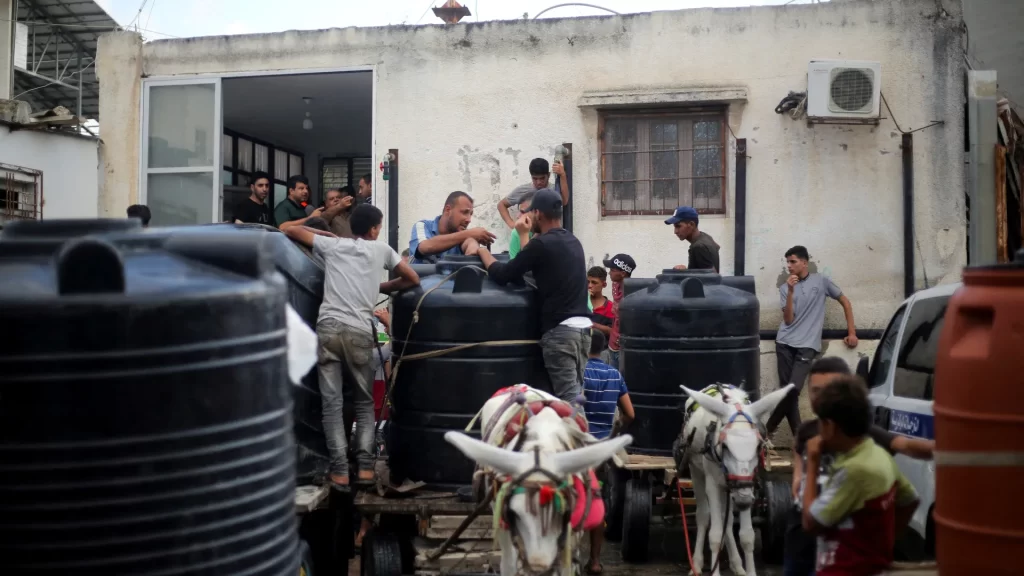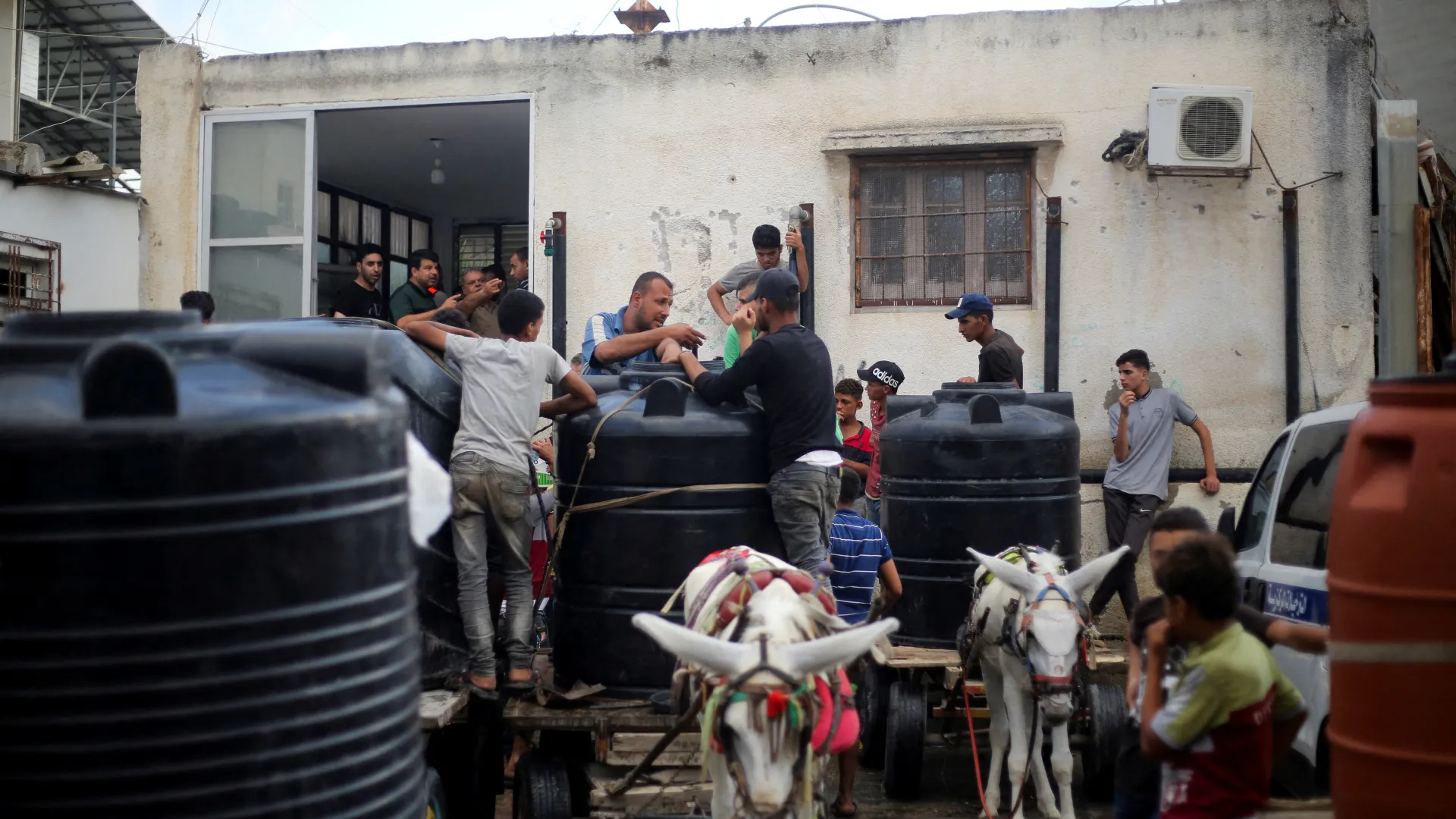
Jameel al-Karoubi and his donkey used to sell vegetables, now they walk around the neighborhood delivering water to the thirsty.
Gaza City – Jameel al-Karoubi has grown accustomed to his new daily routine over the past nine days.
Every day, he wakes before sunrise. Then, after taking care of whatever his family needs, he and Almond, his donkey, head out into the cratered streets of Gaza to distribute clean drinking water to the people in his neighbourhood from the back of his cart.
“I made a deal with my buddy Almond, that if he keeps waking up early every day and helps me fill the water tank and distribute it to the neighbourhood, I’d give him an extra bag of food every day,” Jameel tells Al Jazeera.
“And since then, he’s kept our deal.”
Before the war began, the 34-year-old man used to sell vegetables off the back of his cart. Now, since the bombardment began, he and Almond do what they can to make a difference for as many people as possible.
A few years ago, Jameel, whose name means “beautiful” in Arabic, inherited a well after his father’s death.
Now, before he attends to his family’s water needs, he fills two large tanks and walks around the neighbourhood, calling out to his neighbours to bring out their gallon tanks and water bags for him to refill.
Jameel lives with his mother, wife and his four children, and says their well holds enough water to keep his neighbours from going thirsty after Israeli forces cut water and electricity supplies to the enclave more than a week ago.

For Jameel, making that decision was easy, he believes people should stand together as one and is putting that belief into practice.
He won’t accept any money for the water, even though his own working-class family could definitely use it.
“I don’t sell it, I distribute it for free,” he says. “If I don’t help my people, who will help them? Israel? I doubt it.”
Speaking to Al Jazeera, one of Jameel’s neighbours said the water was vital, that they could live without internet or even electricity, but not without water.
“I just don’t know what we would do if Jameel weren’t around,” they say. “We tried to go to the aid agencies to get water, but they are very crowded and the water there doesn’t taste clean.”
Jameel says he wanted to go beyond his neighbourhood to help more people, but the rubble left by Israeli missile attacks made it impossible to lead his cart through the shelled-out streets.
In spite of his family’s anxiety and fear that moving around with the cart might expose him to harm, they do not want to stop Jameel from undertaking this very homegrown relief effort.
Jameel’s youngest son Osama said: “My father feels he has an obligation to help people, any people, even strangers.
“And he is happiest and proudest when people can go to bed at night without being thirsty.”
He continues: “It’s very dangerous of course, missiles are falling indiscriminately all over Gaza. But we can’t stop him from. People love us and that’s all we could want in return.”
Sometimes, Jameel and Almond distribute vegetables like lemons, potatoes, and whatever he finds in his garden that is extra to his family’s needs.
“I don’t mind giving out free vegetables when I have extra,” he says. “It makes me, and people, happier.”
His effort and courage do not go unappreciated, as Jameel’s neighbours often offer Almond food and insist that he accept it, so Almond can keep helping Jameel do what they do every day.
Jameel neither follows politics nor does he know when the war might end. He only knows that his neighbours are thirsty.
“As long as my people are in need,” he says, “I’ll be there, trying to be as much help as I can.”


